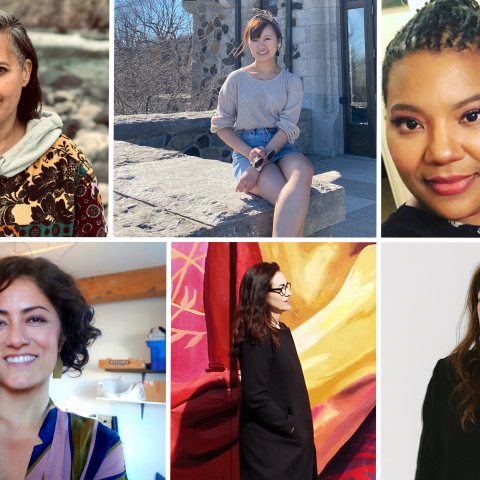
DOK Leipzig will be starting the fourth season of the DOK Industry Podcast on 20 June. From now on, episodes will be released throughout the year. The six episodes of the new season will be released monthly leading up to the festival in October.
Season 4 of the DOK Industry Podcast will include a profile of the Re-Present Media initiative, which works to promote personal stories by filmmakers from groups that are underrepresented in documentary and non-fiction media. Other episodes will discuss the current working conditions of filmmakers from Hong Kong, reflect on the role of documentaries in the critical discussion of the decolonisation of museums, and explore documentary animated film.
“Our podcasts are a source of inspiration and education to envision a more diverse film industry,” explains Nadja Tennstedt, head of DOK Industry. “We believe in the power of a broad range of experiences, aesthetics, storytelling and perspectives.”
The DOK Industry podcasts are produced in collaboration with the Programmers of Colour Collective (POC2) and the creators of the “What’s Up with Docs” podcast, Toni Bell and Ranell Shubert. The conversations are curated and moderated by film industry professionals who include underrepresented perspectives in the discussion. Among this year’s curators are Lucy Mukerjee, Karen Cheung, Aisha Jamal and Maria-Christina Villaseñor from POC2, Toni Bell and XR Creator Weronika Lewandowska.
All episodes will be posted on the DOK Leipzig website as well as on Spotify, Apple Podcasts, Google Podcasts, and Deezer.
The podcasts have been a part of DOK Industry since 2020. Two global phenomena have had a major influence on the new format. The COVID-19 pandemic challenged DOK Leipzig to develop new means of exploring burning issues in the film industry online. At the same time, the Black Lives Matter movement brought to the fore the urgent need to discuss the level of equity and inclusivity in the documentary film industry in a more critical and transparent way.
While DOK Industry has been committed to gender parity and to supporting underrepresented voices for many years, the team recognized the need to create dedicated space in which to meaningfully address the status quo of the industry in terms of power structures and lack of representation as well as offering pathways into films, criticism and works of creators and writers from marginalized groups.